Chanjuan Li
Towards Building an Open-Domain Dialogue System Incorporated with Internet Memes
Mar 08, 2022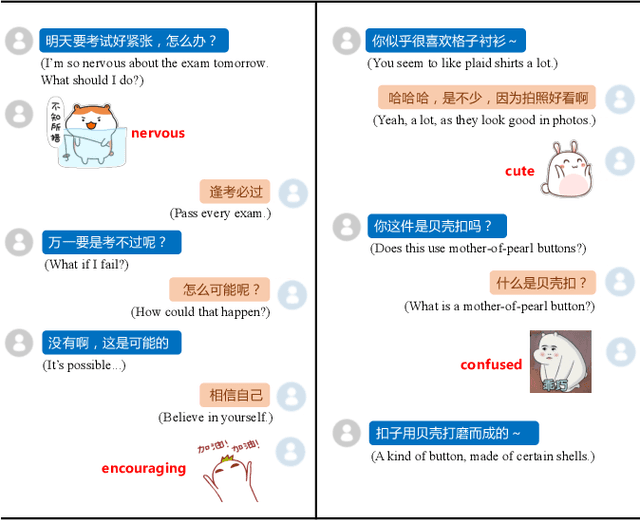

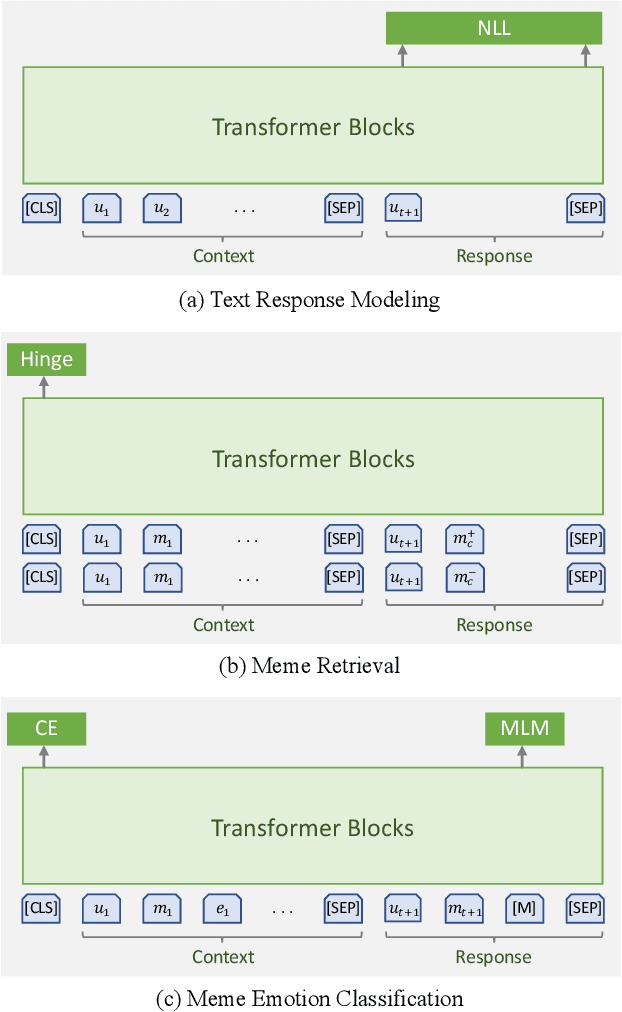
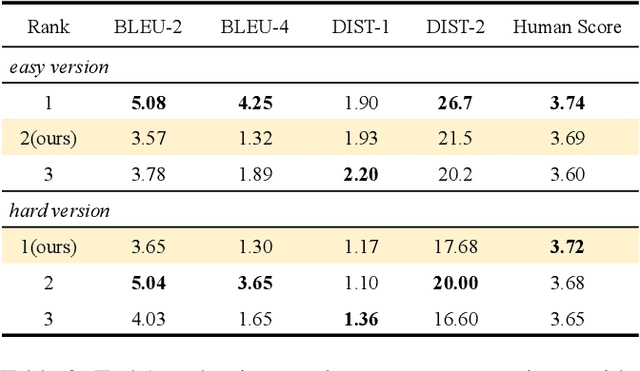
Abstract:In recent years, Internet memes have been widely used in online chatting. Compared with text-based communication, conversations become more expressive and attractive when Internet memes are incorporated. This paper presents our solutions for the Meme incorporated Open-domain Dialogue (MOD) Challenge of DSTC10, where three tasks are involved: text response modeling, meme retrieval, and meme emotion classification. Firstly, we leverage a large-scale pre-trained dialogue model for coherent and informative response generation. Secondly, based on interaction-based text-matching, our approach can retrieve appropriate memes with good generalization ability. Thirdly, we propose to model the emotion flow (EF) in conversations and introduce an auxiliary task of emotion description prediction (EDP) to boost the performance of meme emotion classification. Experimental results on the MOD dataset demonstrate that our methods can incorporate Internet memes into dialogue systems effectively.
Prediction, Selection, and Generation: Exploration of Knowledge-Driven Conversation System
May 05, 2021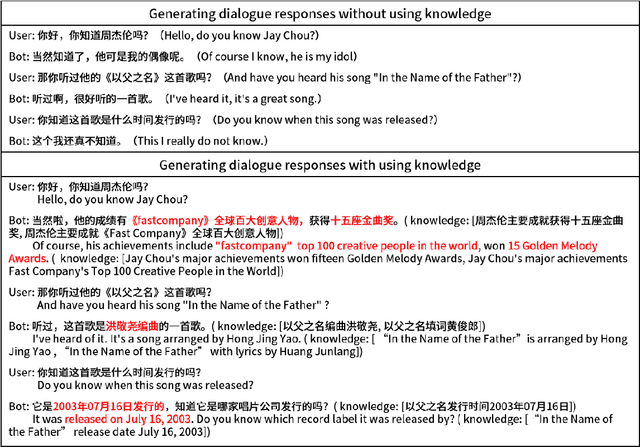
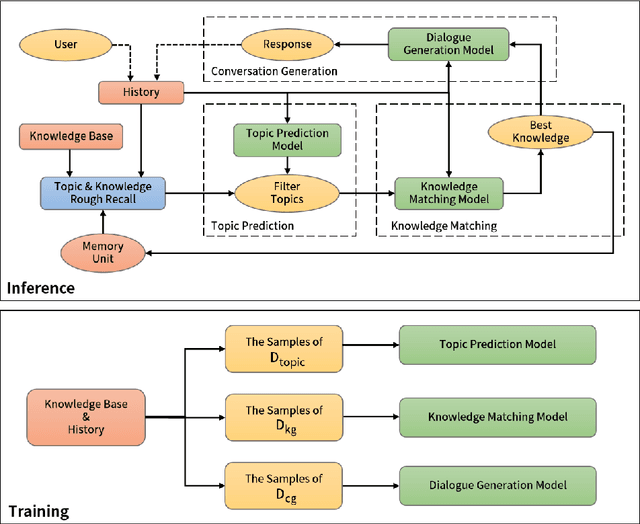


Abstract:In open-domain conversational systems, it is important but challenging to leverage background knowledge. We can use the incorporation of knowledge to make the generation of dialogue controllable, and can generate more diverse sentences that contain real knowledge. In this paper, we combine the knowledge bases and pre-training model to propose a knowledge-driven conversation system. The system includes modules such as dialogue topic prediction, knowledge matching and dialogue generation. Based on this system, we study the performance factors that maybe affect the generation of knowledge-driven dialogue: topic coarse recall algorithm, number of knowledge choices, generation model choices, etc., and finally made the system reach state-of-the-art. These experimental results will provide some guiding significance for the future research of this task. As far as we know, this is the first work to study and analyze the effects of the related factors.
 Add to Chrome
Add to Chrome Add to Firefox
Add to Firefox Add to Edge
Add to Edge